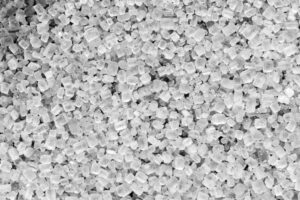In the landscape of industrial materials, Nickel Chemical-Silicon Carbide (NiSiC) has emerged as a major player due to its distinct properties and applications. This guide will thoroughly explore what NiSiC is, its unique characteristics, applications, and the benefits it offers in different industries.

Table of Contents
ToggleWhat is Chemical Nickel – Silicon Carbide (NiSiC)?
NiSiC is a composite material that combines the strength of chemical nickel plating with the hardness and wear resistance of silicon carbide. The result is a superior coating that can withstand the most extreme conditions, offering outstanding performance and extended durability.
Distinctive Features
Corrosion Resistance
NiSiC is known for its outstanding resistance to corrosion. It can withstand a wide range of aggressive chemicals and corrosive environments.
Hardness and Wear Resistance
The combination of nickel and silicon carbide gives NiSiC a high hardness. It is highly wear-resistant, making it ideal for applications where the material is subject to constant friction and abrasion.
Thermal Conductivity
NiSiC offers good thermal conductivity and stability, maintaining its properties even at high temperatures.
Main Applications
Mechanical Industry
NiSiC is often used in mechanical components such as pumps, valves and other parts that are subject to severe wear and exposure to corrosive chemicals.
Automotive Industry
In this industry, NiSiC is used for its resistance to wear and corrosion, finding application in engine parts, brakes and other critical automotive components.
Aerospace Industry
The high temperature resistance and light weight of NiSiC also make it a material of choice in the aerospace industry.
Types of Enterprises and Sectors that Benefit from NiSiC
Manufacturers of Equipment
Companies that manufacture machinery and equipment for industries such as chemical, aerospace, and automotive adopt NiSiC to improve the durability and efficiency of their products.
Maintenance Services
Businesses focused on the maintenance and repair of industrial equipment use NiSiC to restore and protect damaged components.
Conclusion
Chemical Nickel-Silicon Carbide (NiSiC) is more than a composite material; it is a revolution in the field of industrial materials. With its unique combination of corrosion resistance, hardness and heat resistance, NiSiC is setting new standards in performance and durability.
For companies and professionals seeking next-generation material solutions, understanding and harnessing the potential of NiSiC could be the key to unlocking new levels of efficiency, safety and innovation. In a world where engineering challenges are becoming increasingly complex, NiSiC emerges as a powerful and reliable ally.

